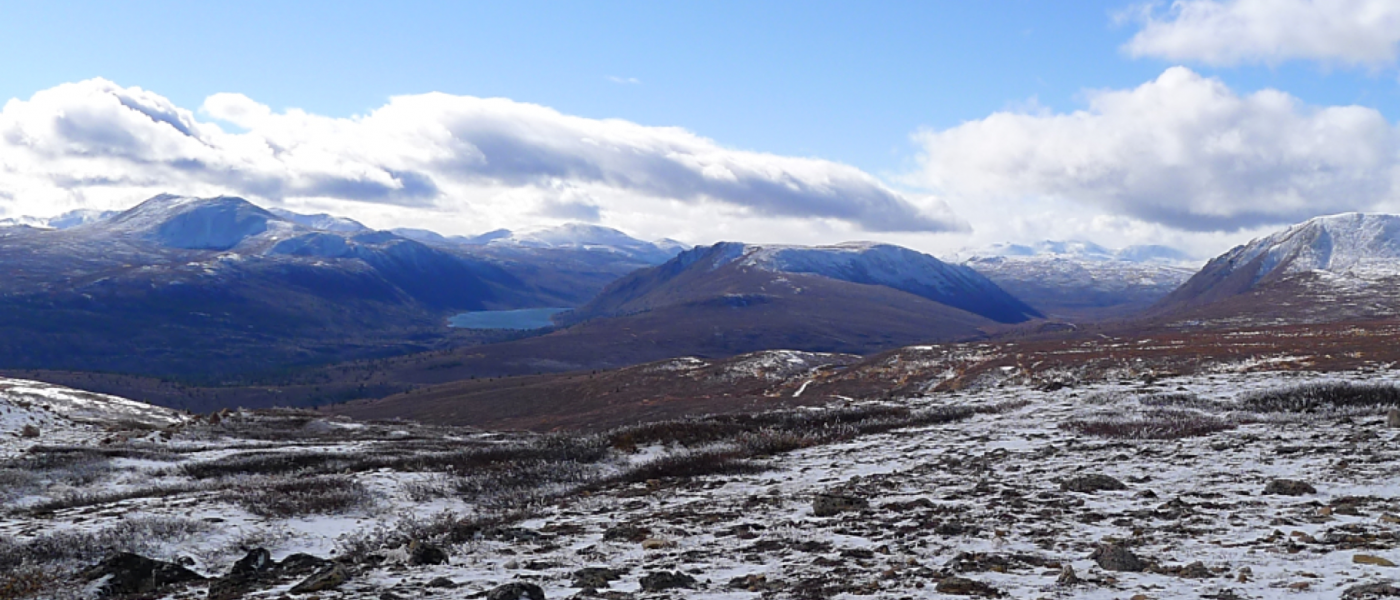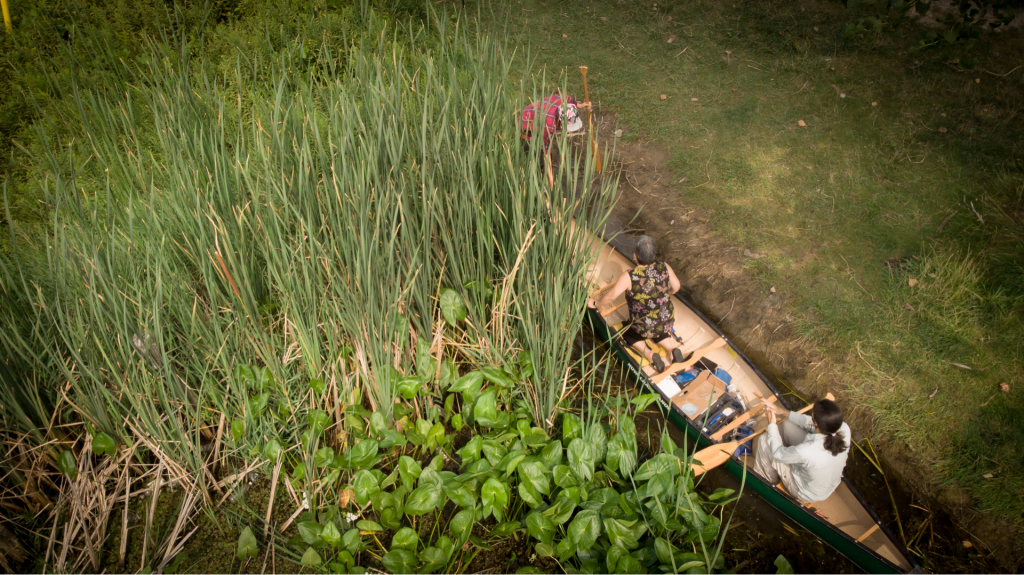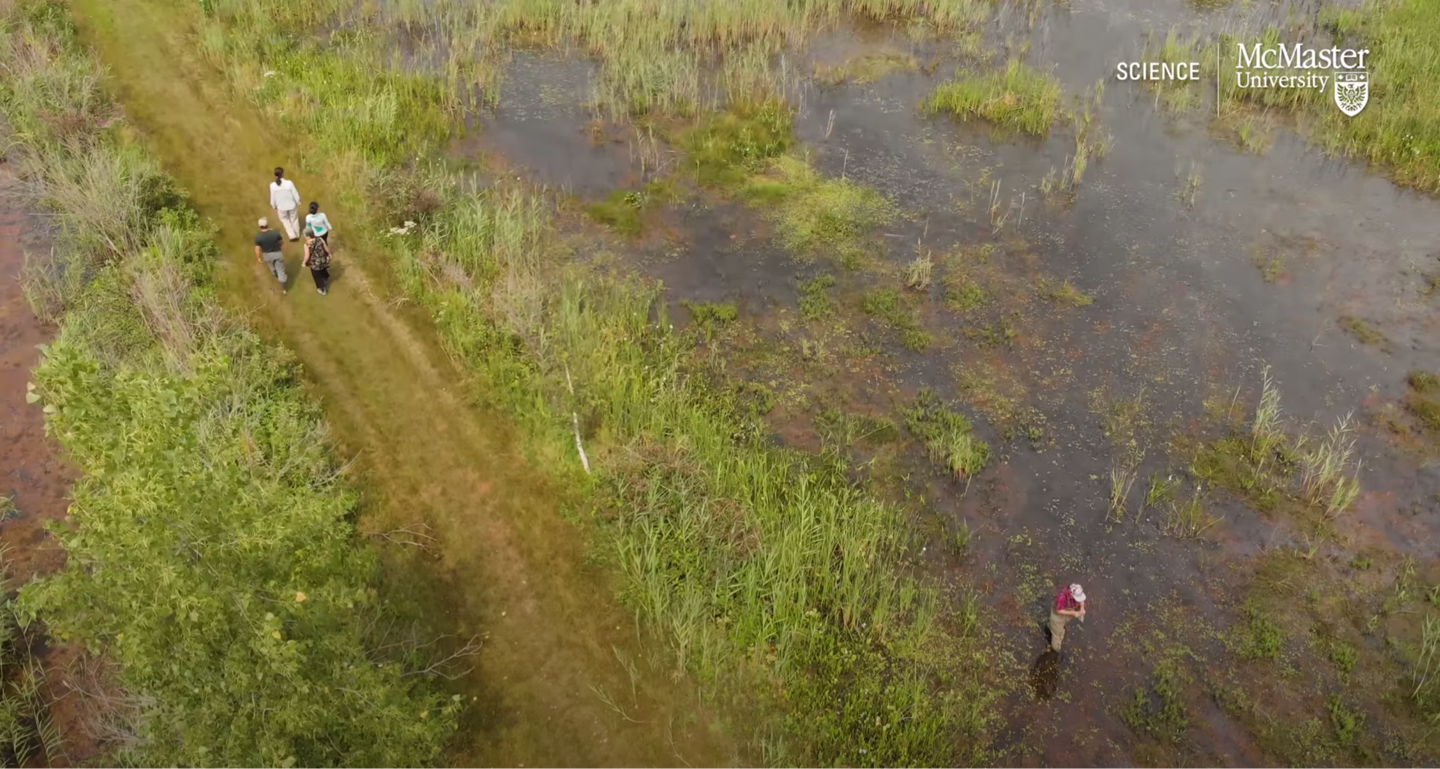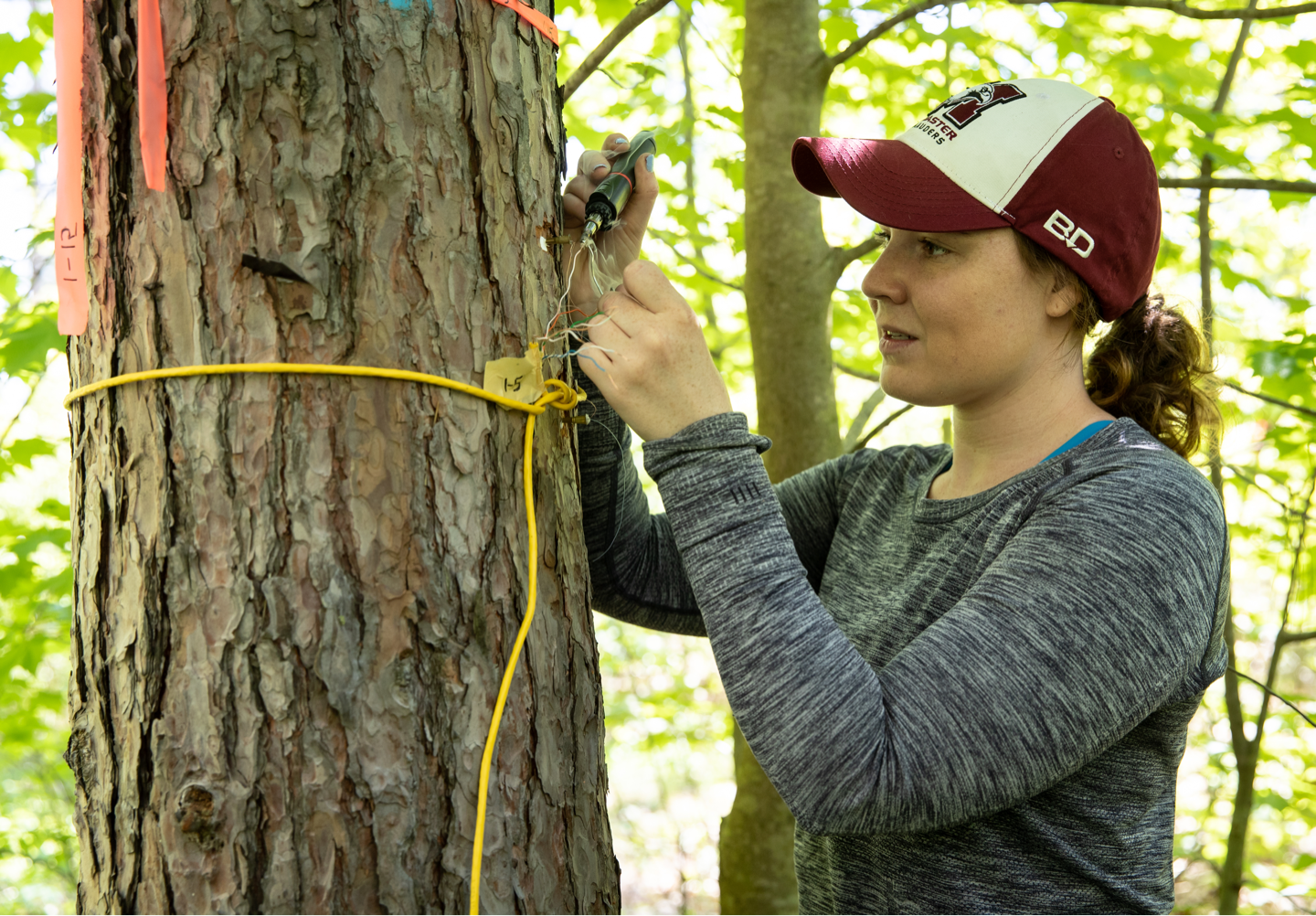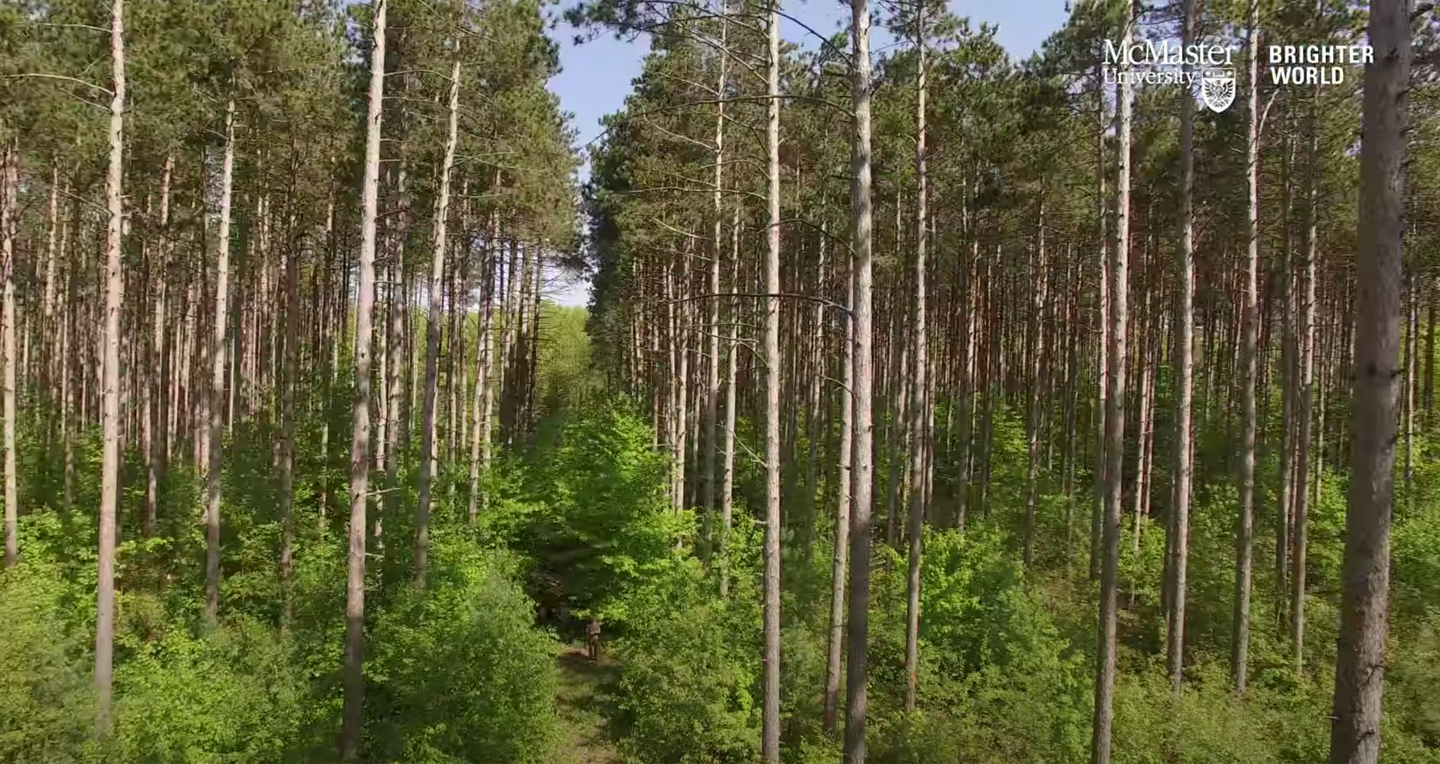About Our Research
About our Research
McMaster is Canada’s most research-intensive university. The McMaster Centre for Climate Change contributes to the university’s national and international rankings and reputation for research excellence.
The McMaster Centre for Climate Change supports interdisciplinary research that leads to innovative solutions. The centre brings together acclaimed researchers from McMaster’s Faculties of Science, Health Science, Engineering, Social Science and School of Business. Together with graduate and undergraduate students, and university partners, researchers focus on seven key themes:
Expandable List
The Earth’s climate is an extremely complex, interactive system consisting of the atmosphere, land surface, snow, ice, oceans, other bodies of water, and all the living things that call it home.
Climate models are the tools that researchers use to understand the complex physical climate systems taking place around the world every day. While there is a great deal of uncertainty, in recent years these models have improved significantly. Climate models now include elements of carbon and nitrogen cycles, interactive or dynamic vegetation ecosystems, and an improved description of atmospheric circulation and processes. In predicting future climate change at both global and regional levels, researchers are moving ever closer to representing physical processes as close to reality as possible.
Researchers
Dr. A. Arain, Email: arainm@mcmaster.ca
Dr. H.W. Barker, Email: howard.barker@ec.gc.ca
Dr. P. Coulibaly, Email: couliba@mcmaster.ca
Dr. N. Kevlahan, Email: kevlahan@mcmaster.ca
Dr. I. K. Tsanis, Email: tsanis@mcmaster.ca
Climate change will impact terrestrial ecosystems in many different ways around the world. Changes in temperature, precipitation and atmospheric greenhouse gases alter the conditions for vegetation growth and ecosystem structures.
For example, plant growth rates may increase due to longer growing seasons and higher atmospheric CO2 concentrations. On the other hand, nutrient limitation and more intense droughts and heat waves may lower productivities in certain vegetation ecosystems.
Climate change may increase the frequency and intensity of natural disturbances such as fire or the occurrence of insects, which is already being observed in many parts of North America, in particular in Canada’s northwest region. Climate impacts will be more pronounced in northern latitudes and most vegetation ecosystems in these regions will be forced to adapt.
Short-term and long-term changes in temperature, precipitation and atmospheric CO2 will alter the conditions for vegetation growth and ecosystem structures.
Researchers
Dr. J. Chen, Email: chenj@geog.utoronto.ca
Dr. P. Chow-Fraser, Email: chowfras@mcmaster.ca
Dr. A. Arain, Email: arainm@mcmaster.ca
Dr. J. M. Waddington, Email: jmw@mcmaster.ca
Dr. G. Krantzberg, Email: krantz@mcmaster.ca
Dr. G. Scott, Email: scottg2@mcmaster.ca
Water covers more than 70 per cent of the Earth’s surface is vital to all forms of life. Through the hydrologic cycle, water moves among land, ocean and air, and plays an integral role in weather and climate.
Water continually moves through a cycle of evaporation, precipitation, and runoff. This cycle cools the Earth’s surface, fuels plant growth, and contributes to rock weathering and other biogeochemical processes. The quality of fresh water plays a fundamental role in human health.
The availability of fresh, clean drinking water is expected to decline with future climate change, and will become this century’s number one climate issue.
Researchers
Dr. P. Chow-Fraser, Email: chowfras@mcmaster.ca
Dr. A. Arain, Email: arainm@mcmaster.ca
Dr. J. E. Smith, Email: smithja@mcmaster.ca
Dr. J. M. Waddington, Email: jmw@mcmaster.ca
Dr. P. Coulibaly, Email: couliba@mcmaster.ca
Dr. S. Carey, Email: careysk@mcmaster.ca
Dr. G. Krantzberg, Email: krantz@mcmaster.ca
Dr. Y. Guo, Email: guoy@mcmaster.ca
Dr. I. K. Tsanis, Email: tsanis@mcmaster.ca
Dr. S. Dickson, Email: sdickso@mcmaster.ca
We must look to the past to better predict our future. Be understanding climate change over time, we can identify how the changes taking place today, and those that will happen in the future, differ from what has occurred in the past.
To gain this knowledge, researchers use fossilized geological records and various isotopic techniques to reveal past climate occurrences. As temperatures rise and fall over hundreds and thousands of years, ocean waters become more or less concentrated with heavy oxygen molecules, as do plants and animals in those waters.
Studying the past through ocean life, ice cores, tree rings and sediment cores provides a way of more accurately using computer models to predict future climate change trends.
Researchers
Dr. J. Boyce, Email: boycej@mcmaster.ca
Dr. S. Kim, Email: sangtae@mcmaster.ca
Dr. M. Padden, Email: paddenm@mcmaster.ca
Dr. E. Reinhardt, Email: ereinhar@mcmaster.ca
Dr. U. Riller, Email: ulrich.riller@uni-hamburg.de
Dr. G. Slater, Email: gslater@mcmaster.ca
Climate change is most often associated with living beings and weather events. Yet as more research is conducted, it becomes clear that the implications of changing climate are much further reaching than that. Long-term climate change trends will impact the sustainability of infrastructure in communities around the world.
Climate change considerations need to be made for areas of infrastructure including:
- Roads and railways
- Water and waterways
- Power generation and transmission
- Airports and air travel
- City planning
- Coastal region destruction
- Northern regions and
- Permafrost degradation
Much remains to be investigated. Research in these areas is just beginning and will heavily influence all levels of decision-makers around the world.
Researchers
Dr. A. Arain, Email: arainm@mcmaster.ca
Dr. J. Cotton, Email: cottonjs@mcmaster.ca
Dr. P. Coulibaly, Email: couliba@mcmaster.ca
Dr. S. Dickson, Email: sdickso@mcmaster.ca
Dr. G. Krantzberg, Email: krantz@mcmaster.ca
Dr. Y. Guo, Email: guoy@mcmaster.ca
Remediation of the complex impacts from climate change will require adopting innovative multidisciplinary approaches.
While climate mitigation may be a long-term goal, various adaptation strategies may effectively be utilized to reduce climate change impacts and improve the resiliency of ecosystems and human society.
Information sharing and the development of public policy regarding climate change is essential for long-term sustainability and environmentally-friendly product developments.
Researchers
Dr. J. D. Eyles, Email: eyles@mcmaster.ca
Dr. S. Elliott, Email: elliotts@uwaterloo.ca
Dr. C. Miall, Email: miallce@mcmaster.ca
Dr. G. Krantzberg, Email: krantz@mcmaster.ca
Dr. Y. Guo, Email: guoy@mcmaster.ca
People cause large disturbances to our surroundings through land use change and urban development. These activities may severely affect human health and society. As outlined by the World Health Organization, there are five major health consequences directly linked with land use and urban development changes:
- Food security – The agricultural sector is extremely sensitive to weather events. Crop failures and diminishing yields may have both economic and social impacts.
- Extreme weather events – Extreme weather events cause more deaths and injuries which we are still unable to predict, in addition to increasing the outbreak in deadly diseases, when water and sanitation services are damaged.
- Water quality and quantity – Drought may cause large-scale famine and water scarcity or flooding may contaminate food and water sources causing disease outbreaks.
- Heat waves – especially in large cities, increase rates of mortality mainly in the elderly and those with cardiovascular and respiratory disease.
- Infectious diseases – Changing temperatures and rainfall patterns are expected to alter the distribution of insects that carry infectious diseases, making them more prevalent in new areas of the world.
Research into the impacts that climate change will have on society provide citizens with the opportunity to become more knowledgeable and more proactive in protecting their health and the well-being of those in the community around them.
Researchers
Dr. J.D. Eyles, Email: eyles@mcmaster.ca
Dr. S. Elliott, Email: elliotts@uwaterloo.ca
Dr. M. Loeb, Email: loebm@mcmaster.ca
Dr. C. Miall, Email: miallce@mcmaster.ca
Dr. A. Williams, Email: awill@mcmaster.ca
Dr. N. Yiannakoulias, Email: yiannan@mcmaster.ca
Dr. G. Ljubicic, Email: gita.ljubicic@mcmaster.ca
Dr. A. Kubursi, Email: kubursi@mcmaster.ca
Dr. R. O’Brien, Email: obrienr@mcmaster.ca
Dr. R. Wilton, Email: wiltonr@mcmaster.ca
RESEARCH Opportunities
Postdoctoral Fellowship in Climate-Ecosystem Interactions (July or September 2022)
The successful candidate will investigate the impacts of climate change and extreme weather events on ecosystems (e.g. forests, crops) and watersheds in the Great Lakes region. Skills in field data collection in areas such as biogeochemistry, meteorology, eddy covariance analysis, ecosystem remote sensing and/or ecohydrological modelling are required. In addition to conducting research and scholarship, the candidate will also engage in organizing and implementing science communication and outreach activities for the McMaster Centre for Climate Change and the McMaster Carbon Sink Forest.
For more information and application instructions, please read the full Postdoctoral Fellowship in Climate-Ecosystem Interactions document.
Our Networks
NSERC FloodNet Learn More
Proud to be part of a national effort to better forecast and manage floods.
McMaster Water Networks Learn More
Get involved in McMaster water Network’s student chapter
Global Water Futures Learn More
Finding solutions to water threats
Information Box Group

In the News View Stories
Our experts are at the forefront of climate change research. See what they have to say in the national and international media.
Climate Change Members

Dr. Altaf Arain
Professor and MCCC Director
School of Earth, Environment & Society
Dr. H.W. Barker
Research Scientist
Environment Canada

Dr. Joe Boyce
Professor
School of Earth, Environment & Society

Dr. Sean Carey
Professor
School of Earth, Environment & Society

Dr. Patricia Chow-Fraser
Professor
Department of Biology, McMaster University

Dr. Paulin Coulibaly
Professor
Department of Civil Engineering/School of Earth, Environment & Society

Dr. Charles-François de Lannoy
Associate Professor
Department of Chemical Engineering, McMaster University

Dr. Sarah Dickson-Anderson
Associate Dean
Faculty of Engineering, McMaster University

Dr. James E. Smith
Professor
School of Earth, Environment & Society

Dr. Susan Elliott
Professor
Department of Geography and Environmental Management, University of Waterloo

Dr. John Eyles
Professor Emeritus
School of Earth, Environment & Society

Dr. Alemu Gonsamo Gosa
Assistant Professor and MCCC Associate Director
School of Earth, Environment & Society

Dr. Yiping Guo
Professor Emeritus
School of Earth, Environment & Society

Dr. Alexander Hall
Assistant Professor
Interdisciplinary Science

Dr. Ioannis K. Tsanis
Professor Emeritus
Department of Civil Engineering,McMaster University

Dr. Nicholas Kevlahan
Professor
Department of Mathematics and Statistics, McMaster University

Dr. Sang-Tae Kim
Professor
School of Earth, Environment & Society

Dr. Gail Krantzberg
Professor
Department of Civil Engineering, McMaster University
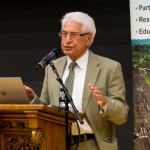
Dr. Atif Kubursi
Professor Emeritus
Department of Economics, McMaster University

Dr. Gita Ljubicic
Associate Professor
School of Earth, Environment & Society

Dr. Mark Loeb
Professor
Department of Pathology and Molecular Medicine, McMaster University

Dr. Thomas Marois
Professor
Department of Political Science, McMaster University

Dr. Jing Ming Chen
Professor
Department of Geography and Planning, University of Toronto

Dr. Bruce Newbold
Associate Dean
Faculty of Science, McMaster University

Dr. Robert O’Brien
Professor
Department of Political Science, McMaster University

Dr. Maureen Padden
Associate Professor
School of Earth, Environment & Society

Dr. Elli Papangelakis
Assistant Professor
School of Earth, Environment & Society

Dr. Léa Ravensbergen
Assistant Professor
School of Earth, Environment & Society

Dr. Eduard Reinhardt
Professor
School of Earth, Environment & Society

Dr. James S. Cotton
Professor
Department of Mechanical Engineering, McMaster University

Dr. Darren Scott
Professor
School of Earth, Environment & Society

Dr. Graham Scott
Professor
Department of Biology, McMaster University

Dr. Greg Slater
Professor
School of Earth, Environment & Society

Dr. Mike Waddington
Professor
School of Earth, Environment & Society

Dr. Allison Williams
Professor
School of Earth, Environment & Society

Dr. Robert Wilton
Professor
School of Earth, Environment & Society

Dr. Derek Wood
Assistant Professor
Communication Studies & Media Arts

Dr. Niko Yiannakoulias
Professor
School of Earth, Environment & Society


